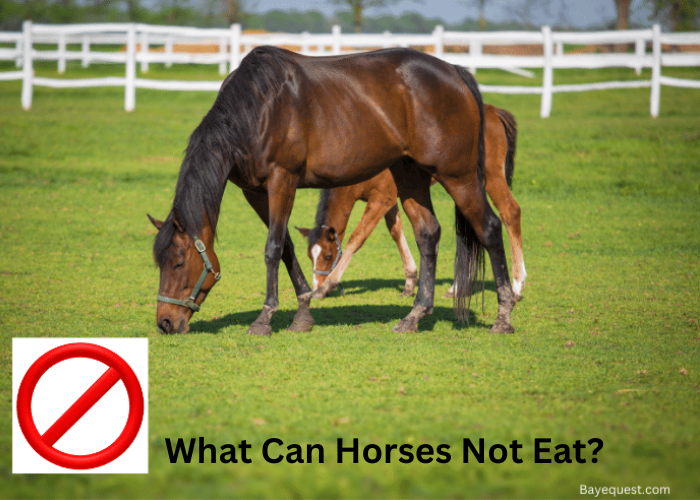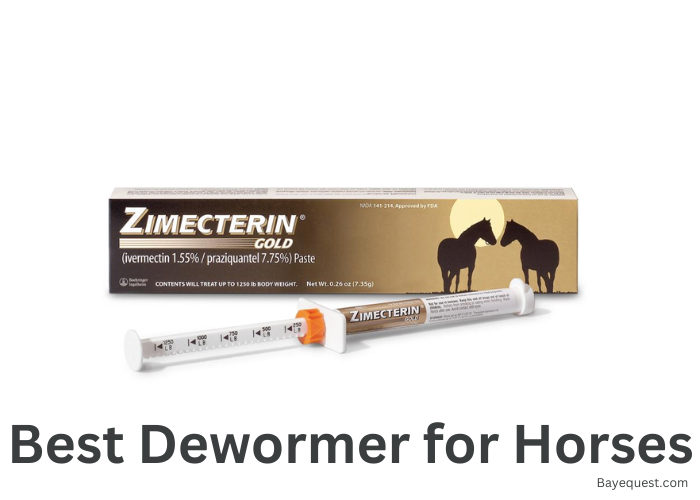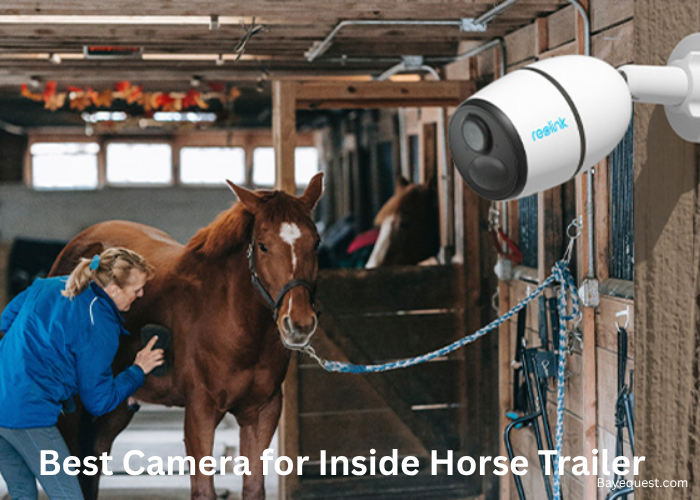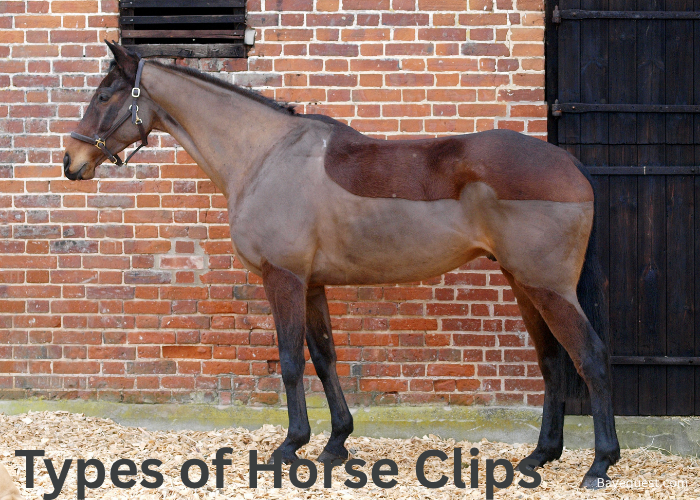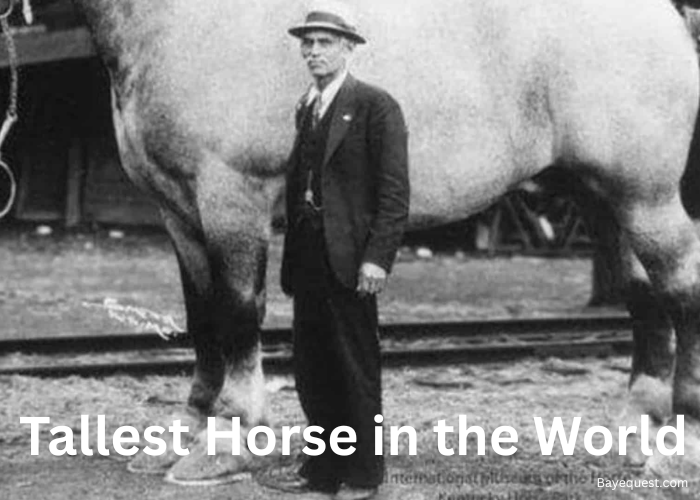Horses are curious creatures, but not everything is safe for their grazing.
Some foods, though harmless to us, can be dangerous—even deadly—for them.
From certain fruits to garden plants, there’s a surprising list of foods they must avoid.
So, what exactly can’t horses eat? Let’s dive into the dos and don’ts of keeping your horse healthy and safe.
What Can Horses Not Eat? Key Takeaway
| Category | Examples |
| Toxic plants | Hemlock, Ragwort, Yew |
| Some fruits and vegetables | Tomatoes, Potatoes, Onions, Avocadoes |
| Milk products | Milk, Cheese, Yogurt, Ice cream |
| Processed foods | Chips, Candy, Bread, Crackers, Snack cakes |
| Non-food items | Plastic, Metal, Treated Wood, Stones, Rubber, Clothes and fabric, Paint and chemicals |
| Household plants | Lilies, Rhododendrons, Poinsettias, Philodendrons, Oleander, English Ivy, Foxglove, Azaleas |
| Commercial horse feed additives | Moldy Hay, Ionophores, Urea, Preservatives and chemicals, Artificial flavors and colors |
| Common human foods and drinks | Chocolate, Meat, Caffeine, Alcohol |
Foods You Should Not Feed Your Horse
Some of the foods you should not feed your horse include:
Toxic plants
Horses, while often resilient, can be quite sensitive to certain plants. Here are some of them:
Hemlock
Hemlock is one of the most dangerous plants a horse can encounter. It contains coniine and other alkaloids, which are potent toxins.
When a horse ingests even a small amount, it can severely impact the nervous system. Symptoms include tremors, difficulty breathing, and muscle paralysis.
In many cases, the poison works so quickly that the horse can die within hours.
Because of its high toxicity, hemlock should be immediately removed from any area where horses graze.
Ragwort
Ragwort is another plant that poses a serious threat to horses. It contains pyrrolizidine alkaloids, toxic compounds primarily affecting the liver.
Horses that consume ragwort, even in small quantities over time, can suffer from chronic liver damage.
Signs of ragwort poisoning include weight loss, jaundice, and neurological issues.
Unfortunately, the damage caused by ragwort is often irreversible.
Now you know how crucial it is to prevent horses from grazing in areas with this plant.
Yew
Yew is infamous for its deadly effects on horses. The plant contains taxine alkaloids, which interfere with the heart’s function.
Ingesting yew can lead to sudden death due to heart failure, often without any prior symptoms.
This makes yew particularly dangerous, as horses may consume it without showing immediate distress.
To protect horses, yew plants should not be accessible in pastures or near stables. Even clippings from yew trees can be lethal, so proper disposal is vital.
Some fruits and vegetables
Horses can eat some vegetables and fruits in moderation. However, there are some they should never eat. These include:
Tomatoes
While delicious for humans, tomatoes are harmful to horses. They contain solanine, a toxic compound found in all parts of the plant, including the fruit.
Solanine can cause severe gastrointestinal distress in horses. In large amounts, it can even cause neurological issues, such as tremors and lack of coordination.
It’s best to keep tomatoes and their plants far away from grazing areas.
Potatoes
Horses should avoid potatoes when raw or green, potatoes contain solanine, similar to tomatoes.
This toxin can cause gastrointestinal upset and has the potential to lead to more serious health issues.
Cooked potatoes are less toxic but not recommended for horses due to their high starch content.
Always ensure that potatoes are not within reach of your horse.
Onions
Onions, and all members of the allium family, are highly toxic to horses. They contain compounds that can cause hemolytic anemia.
Symptoms of onion toxicity include weakness, rapid breathing, and a loss of appetite. In severe cases, it can lead to death.
Because of their strong toxicity, onions should never be fed to horses or allowed to grow in areas where horses graze.
Avocados
Avocados might be a superfood for humans, but they’re dangerous for horses. The fruit, leaves, and bark contain a substance called persin, which can cause colic, respiratory distress, and swelling in the head and neck.
Ingesting avocados can also lead to more severe health problems, such as heart damage and, in extreme cases, death.
Keep avocados out of your horse’s diet and ensure they aren’t growing in areas where your horse roams.
Milk products
Milk products, while a staple in many human diets, are unsuitable for horses. Here’s why:
Milk
Milk is rich in lactose, a sugar many adult horses cannot digest. Horses naturally produce less lactase, the enzyme needed to break down lactose, as they age.
Consuming milk can lead to digestive upset, including diarrhea and gas, due to lactose intolerance.
While foals can digest their mother’s milk, adult horses should avoid it.
Cheese
Cheese, like milk, contains lactose. Additionally, cheese is high in fat and salt, making it an inappropriate treat for horses.
The high fat content can disrupt a horse’s delicate digestive balance, potentially leading to colic. The salt can contribute to dehydration and electrolyte imbalances.
Yogurt
Yogurt is another dairy product that horses should not consume.
Although yogurt contains beneficial probiotics for humans, the lactose content can cause digestive issues for horses.
The same lactose intolerance that affects their ability to digest milk and cheese also applies to yogurt.
Feeding horses yogurt can result in stomach pain, bloating, and diarrhea.
Ice cream
Ice cream, despite being a tempting treat for humans, is particularly unsuitable for horses. It combines the lactose of milk with high levels of sugar and fat.
The lactose can cause digestive upset, while the sugar and fat can lead to weight gain and metabolic issues.
Additionally, the cold temperature of ice cream can be a shock to a horse’s system.
Processed foods
Processed foods are designed for human consumption and often contain ingredients that are harmful to horses. Here’s a look at some common processed foods and their effects on horses:
Chips
Chips are a popular snack for humans but are unhealthy for horses. They are high in salt and fat, which can lead to dehydration and digestive upset.
Excessive salt can cause electrolyte imbalances, and the high fat content can disrupt a horse’s digestive system.
Furthermore, the artificial flavors and preservatives in chips can be harmful and unsuitable for a horse’s diet.
Candy
Candy, including chocolates and sugary treats, is another processed food that should never be given to horses.
The high sugar content can cause rapid spikes in blood sugar levels.
Chocolate, in particular, contains theobromine, which is toxic to horses and can cause severe health issues such as seizures, internal bleeding, and even death.
Bread
Bread might seem harmless, but it can cause significant problems for horses. It is high in carbohydrates and yeast, which can lead to digestive disturbances.
When bread ferments in the stomach, it can cause gas and bloating, leading to colic.
Additionally, feeding bread can disrupt the balance of gut flora, leading to more severe digestive issues.
Related read: Is bread safe for horses?
Crackers
Crackers, similar to chips, contain high salt levels and often have added fats and artificial ingredients.
The salt content can cause dehydration and electrolyte imbalances, while the fats can upset the digestive system.
Refined carbohydrates in crackers can also spike blood sugar, contributing to metabolic disorders. The artificial additives and preservatives are unsuitable for a horse’s natural diet.
Processed meats
Processed meats, such as sausages and hot dogs, are entirely unsuitable for horses. Horses are herbivores whose digestive systems are not designed to process meat.
Consuming processed meats can cause severe digestive upset, including colic and diarrhea.
Additionally, these products often contain high levels of salt, fat, and preservatives, which can be toxic to horses.
Snack cakes
Snack cakes and pastries are high in sugar, fat, and artificial additives.
The sugar content can rapidly increase blood glucose levels, causing hyperactivity and increasing the risk of metabolic disorders.
The high-fat content can disrupt the digestive system, leading to colic. Furthermore, these treats’ artificial colors, flavors, and preservatives can adversely affect a horse’s health.
Non-food items
Horses are curious creatures and sometimes nibble on things that aren’t food, which can lead to serious health issues.
Here’s a look at some non-food items that horses might ingest and the dangers they pose:
Plastic
Plastic is one of the most common non-food items that horses might chew on, whether it’s a piece of a bucket, a plastic bag, or a toy.
Ingesting plastic can cause choking or create blockages in the digestive tract.
This can lead to colic, a potentially life-threatening condition. Additionally, sharp edges of plastic pieces can cause internal injuries.
Metal
Metal objects, such as nails, screws, or bits of wire, are extremely hazardous if ingested. Metal can cause severe internal damage, including tears and punctures in the digestive tract.
Ingesting metal can also lead to poisoning if the metal contains harmful substances like lead.
Horses should be kept away from areas with loose metal objects.
Treated wood
While horses often chew on wood, treated wood is particularly dangerous.
Treated wood contains chemicals like arsenic, copper, and chromium, which are used to prevent rot and insect damage.
Ingesting these chemicals can lead to poisoning. Horses should not be allowed to chew on any treated wood, such as fence posts or barn siding.
Rubber
Rubber, such as that found in hoses, mats, or toys, can cause problems if ingested. While rubber is not as sharp as plastic or metal, it can still cause blockages in the digestive system.
Additionally, some rubber products contain chemicals that can be toxic if ingested.
Ensure that rubber items are used only under supervision and are kept out of reach when not in use.
Twine and string
Twine and string, often used in hay bales or for tying things up around the barn, pose a significant risk if ingested by horses.
These materials can cause serious blockages in the intestines, leading to colic.
Twine can also become wrapped around parts of the digestive tract, causing severe damage.
Always dispose of twine and string properly and ensure that horses cannot access these materials.
Paint and chemicals
Paint and other chemicals, such as pesticides or cleaning agents, are highly toxic to horses. Ingesting these substances can cause a range of symptoms.
Store all chemicals securely to ensure that horses do not have access to freshly painted areas or places where chemicals have been used.
Cloth and fabric
Cloth and fabric items, such as blankets, rags, and clothing, can be harmful to horses if ingested.
These materials can cause blockages in the digestive tract, leading to colic.
Additionally, cloth items can become lodged in the stomach or intestines, requiring surgical removal. Always keep fabric items out of reach of curious horses.
Household plants
Many common household plants can be toxic to horses if ingested.
While these plants may beautify our homes and gardens, they pose significant health risks to our equine friends.
Here are a few household plants that should be kept away from horses:
Lilies
Lilies are beautiful but extremely toxic to horses. All parts of the lily plant, including the leaves, flowers, and pollen, contain toxins that can cause severe kidney damage.
Symptoms of lily poisoning include lethargy, loss of appetite, and gastrointestinal distress. In severe cases, ingestion can lead to acute kidney failure and death. I
Rhododendrons
Rhododendrons are another popular ornamental plant that is highly toxic to horses.
They contain grayanotoxins, which can interfere with the normal functioning of a horse’s muscles.
Symptoms of rhododendron poisoning include excessive salivation, vomiting, diarrhea, and weakness. Severe cases can result in coma and death.
Poinsettias
Poinsettias contain a milky sap that can cause irritation and gastrointestinal upset in horses.
While not as toxic as other plants, ingesting poinsettias can still lead to discomfort, including drooling, vomiting, and diarrhea.
To keep your horse safe, avoid placing poinsettias anywhere within their reach.
Oleander
Oleander is an attractive plant commonly used in landscaping, but it is one of the most poisonous plants for horses.
Every part of the oleander plant contains cardiac glycosides, which can disrupt the heart’s normal rhythm.
Even a small amount can be fatal. Symptoms of oleander poisoning include colic, difficulty breathing, and an irregular heartbeat.
Azaleas
Azaleas, a type of rhododendron, also contain grayanotoxins, making them toxic to horses. Ingesting azaleas can cause similar symptoms to rhododendron poisoning.
Severe cases can lead to coma or death. Prevent horses from accessing areas where azaleas are planted.
English Ivy
English ivy is a common decorative plant that can be toxic to horses. It contains saponins, which can cause gastrointestinal irritation.
Symptoms of ivy poisoning include drooling, vomiting, and diarrhea. It can also affect the nervous system in severe cases, leading to convulsions or paralysis.
Foxglove
Foxglove is a striking, highly toxic plant due to its cardiac glycosides. These compounds can cause severe heart problems in horses, including an irregular heartbeat and cardiac arrest.
Symptoms of foxglove poisoning include tremors, vomiting, diarrhea, and severe colic. Ensure that foxglove is not present in areas where horses might graze.
Philodendron
Philodendron is a popular houseplant that contains calcium oxalate crystals. These can cause irritation and swelling in a horse’s mouth, throat, and digestive tract.
Symptoms include drooling, difficulty swallowing, and gastrointestinal upset.
Place philodendron plants out of reach to keep your horse safe and promptly clean up any fallen leaves.
Commercial horse feed additives
Commercial horse feed is designed to provide balanced nutrition, but some additives can be harmful. Here are some additives that can pose risks to horses:
Moldy hay
Hay is a staple in a horse’s diet, but if it becomes moldy, it can be extremely dangerous.
Moldy hay can contain mycotoxins, which are toxic substances produced by certain types of fungi.
Ingesting mycotoxins can lead to respiratory issues, digestive problems, and neurological symptoms.
Horses that eat moldy hay might develop colic, diarrhea, or heaves.
Always store hay in a dry, well-ventilated area to prevent these issues and inspect it for mold before feeding.
Ionophores
Ionophores are antibiotics added to livestock feed to promote growth and improve feed efficiency. However, they are highly toxic to horses.
Ingesting ionophores can cause severe damage to a horse’s heart and muscles. In severe cases, ionophore poisoning can be fatal.
Urea
Urea is a non-protein nitrogen source sometimes added to livestock feed to boost protein levels. Horses, however, cannot safely metabolize urea.
Consuming urea can lead to ammonia toxicity. High levels of urea can cause severe health problems, including kidney damage and death.
Preservatives and chemicals
Some commercial feeds contain preservatives and chemicals to extend shelf life or improve palatability.
While many of these additives are safe in small amounts, some horses may be sensitive to them.
Preservatives like ethoxyquin and butylated hydroxytoluene can cause allergic reactions or digestive upset.
Artificial flavors and colors
Artificial flavors and colors are sometimes added to commercial horse feeds to make them more appealing. While these additives are not toxic, they can cause allergic reactions or digestive disturbances in some horses.
Common human foods
Common Human Foods
While sharing a snack with your horse might seem fun, many common human foods can be harmful or toxic to horses. Here are some human foods that should be kept away from your equine friends:
Chocolate
Chocolate is a popular treat for humans, but it contains theobromine and caffeine, which are toxic to horses.
These compounds can overstimulate the horse’s central nervous system and cardiovascular system. Consumption of chocolate can manifest in symptoms such as restlessness, rapid heart rate, seizures, or death.
Read also: Can a horse eat chocolate?
Caffeine
Caffeine is found in many beverages and foods, including coffee, tea, and sodas. It is a powerful stimulant that can have severe effects on a horse’s system.
Consuming caffeine can cause restlessness, increased heart rate, muscle tremors, or cardiac arrest.
Keep all caffeinated products away from horses and avoid sharing drinks or foods that contain caffeine.
Alcohol
Alcohol is toxic to horses and can cause severe health issues, including colic, respiratory distress, and CNS depression. Even small amounts can be dangerous.
Always ensure that alcoholic beverages are kept well out of reach of horses and never offer them any drinks containing alcohol.
Meat
Horses are herbivores with digestive systems designed for fibrous plant material, not meat. Feeding meat to horses can cause severe digestive issues like colic.
Their stomachs and hindguts are not equipped to process the proteins and fats found in meat, resulting in potential health risks.
Moreover, offering meat goes against their natural diet and can cause distress.
Foods Horses Can Eat
Horses thrive on a diet closely mimicking what they naturally eat in the wild. Here are the main categories of foods that are safe and healthy for horses:
1. Forage
- Grass, e.g., Timothy, Bermuda, Orchard, Rye, Fescue.
- Hay, e.g., Timothy hay, Alfalfa hay, Bermuda hay.
2. Grains
- Oats
- Barley
- Corn
3. Commercial Feeds
- Pelleted feeds
- Textured feeds
4. Fruits
- Apples
- Carrots
- Bananas
- Pears
- Plums
- Watermelon
- Strawberries
5. Vegetables
- Carrots
- Celery (Check out more on horses eating celery in our other guide.)
- Cucumber
- Pumpkin
- Squash
6. Supplements
- Salt and mineral blocks
- Vitamin supplements
7. Treats
- Commercial horse treats
- Homemade treats (Read more on the best homemade treats to find out how to make these treats for your horses.)
8. Herbs
- Peppermint
- Rosemary
9. Water
Safe Snacks for Horses
- Sugar cubes: Simple and sweet, but should be given sparingly due to high sugar content.
- Hay cubes: Compressed alfalfa or timothy hay, nutritious and easy to handle.
- Beet pulp: Soak before feeding, a good source of fiber and energy.
- Alfalfa cubes: High in protein, offered as an occasional treat.
What Spices and Herbs Can Horses Eat?
While not typical of horses’ diets, some spices can safely incorporate small amounts into a horse’s meals or treats. These spices can offer health benefits and add variety to their diet.
Here are some spices and herbs that are safe for horses:
- Cinnamon
- Ginger
- Turmeric
- Peppermint
- Rosemary
- Parsley
- Basil
- Thyme
What Horses Can’t Eat: Conclusion
Wrapping up keeping your horse’s diet safe and healthy is key. Remember, not everything that’s tasty for us is good for them.
Avoid those toxic plants, say no to candy, and keep the meat yourself. Stick to the foods that nourish and energize your horse. A little caution goes a long way in preventing health scares.
When in doubt, stick to hay, grass, and horse-friendly treats. Your horse will thank you with happy neighs and a healthy glow.
So, think twice the next time you’re tempted to share your snack. Keep it horse-friendly, and you’ll both be happier for it.




